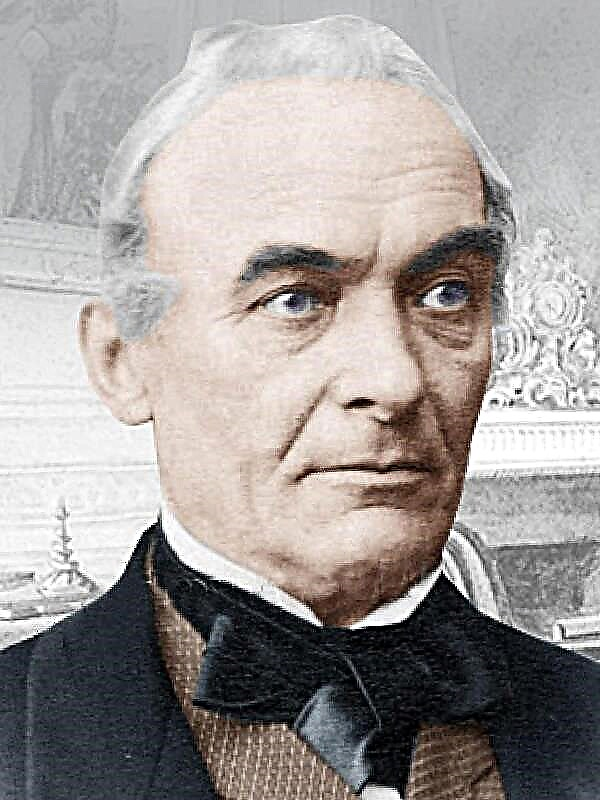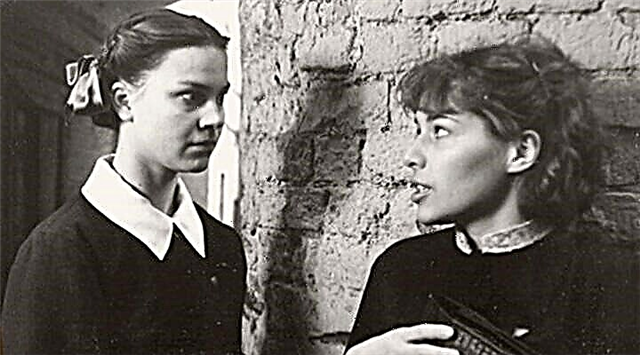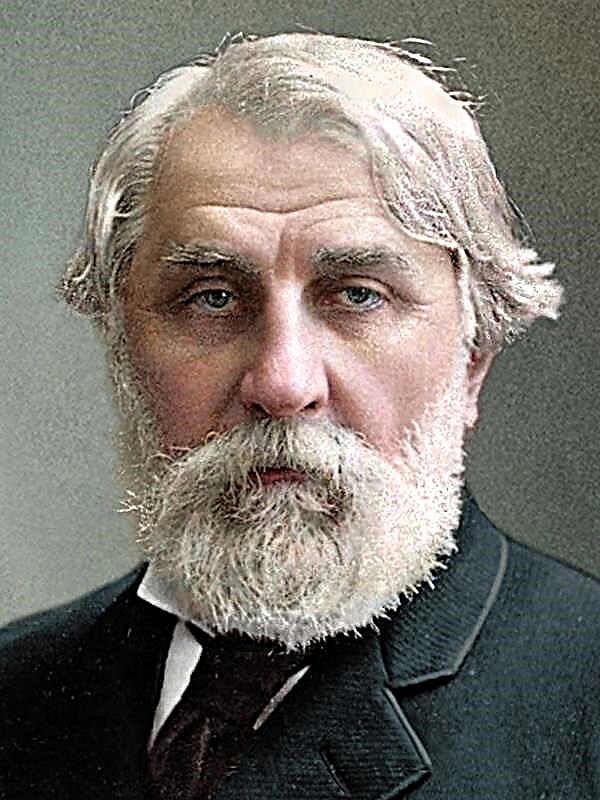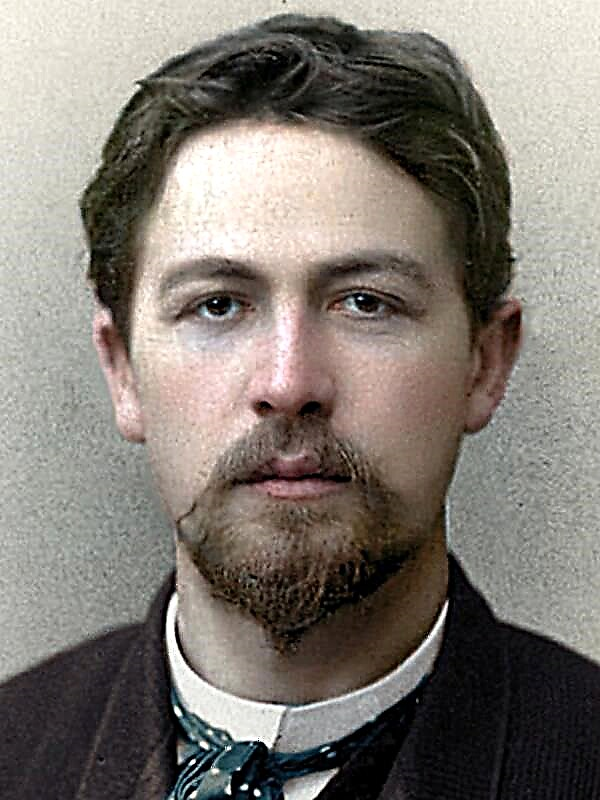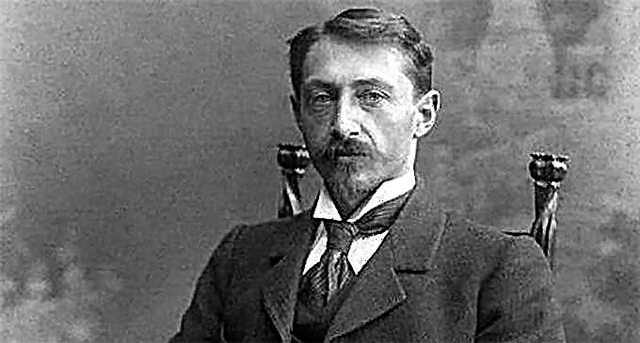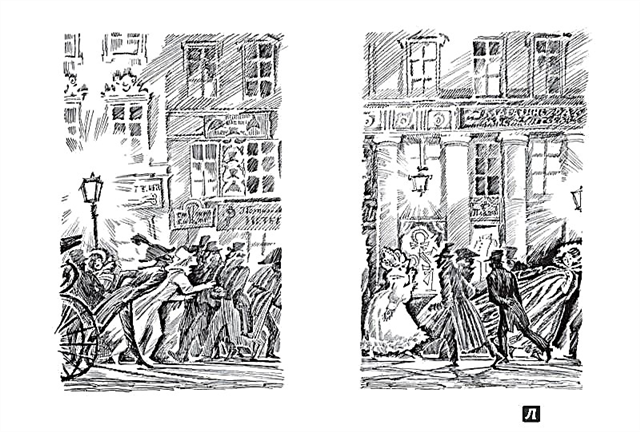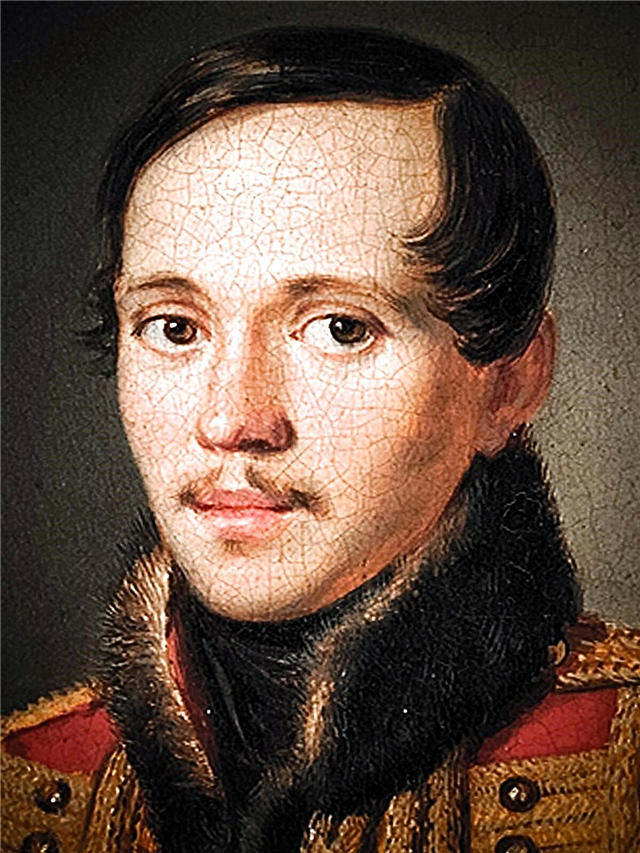The most important thing in preparing for the final essay is the formation of a personal bank of arguments that will help to reveal even the most complex topic. The Literaguru team, which has been creating literary examples for more than a year, will help you in this matter. To complement our selection, write in the comments which work to add, and we will write the appropriate argument specifically for you.
I. S. Turgenev, “Fathers and Sons”
- In I. Turgenev’s novel “Fathers and Sons”, heroes are on opposite sides of the barricades, because they are representatives of different generations. Their conflict occurs, it would seem, out of the blue, but under it lie serious reasons that have been felt for more than a century. Every time, every century, fathers and children quarrel and do not find a common language. So in the book: Eugene and Pavel Petrovich disliked each other at first sight. The owner of the house did not even shake hands, and the guest rudely and mockingly introduced his charter into a strange monastery. The aristocrat saw a rogue in the raznoshchitsa an ill-mannered and arrogant upstart, and the scientist and medic considered the idle gentleman a worthless and empty man. And all because times are changing, and fathers cannot adapt to change, and children do not want to learn from their experience because of self-confidence. Pavel Petrovich could teach Yevgeny Vasilyevich a lot, namely tact, restraint and manners. But Bazarov could introduce the elderly to a new world of transformation. But both generations cannot understand and hear each other, and the cause of this conflict is the uncompromising and categorical nature of fathers and children.
- In the novel by I. Turgenev, “Fathers and Sons,” some reasons are revealed that explain the reluctance of many children to adopt the experience of elders. From Anna’s personal story, we learn that their father was ruined by senseless and excessive binges. As a result, the man left the children to their fate, because women at that time could not work, and without capital they could not marry as a dowry. With his irresponsibility, he crossed out their future. Because of him, Odintsova actually sold herself, becoming the wife of an unloved person. She did this to provide for her younger sister. Of course, after this, the trust of children in their fathers is greatly weakened, and they no longer want to learn anything from them. Thus, the older generation sometimes discredits itself before the descendants, therefore they break the historical ties between the past and the future.
N. V. Gogol, “Dead Souls”
- In the poem of N. Gogol "Dead Souls" tells about the childhood of the protagonist. His father radically influenced his worldview. Little Pavlusha learned from him the strictest economy, and also learned the importance of money from an early age. The testament “Take care of a penny” he remembered for a lifetime. Also, the man taught his son to please the bosses, make friends only with the rich, and more than anything else to appreciate the "penny", because she alone will not sell and will not deceive. Wanting, apparently, to please his father, the boy began to engage in entrepreneurship at school, and in the same place he gained unscrupulousness, which allowed him to proceed to serious fraud in the future. So, improper upbringing led to a deplorable result: Chichikov turned into a fraudster and a swindler who never found truly close people.
- In the poem of N. Gogol "Dead Souls" the tragedy of the Plyushkin family is told. After the death of his good and hospitable wife, the head of the family began to go crazy. From a frugal and hardworking host, he began to turn into a cruel mercantile. His suspicion and greed began to affect children. The eldest daughter ran away from home, and the father cursed her, but then he forgave him when she brought his grandchildren to him. At the same time, he flatly refused to help her and her children, although his pantries were bursting with supplies. The fate of his son was even more tragic. When he asked for money for a uniform, having settled in the army, the old man angrily sent him a curse. The young man got into card debts, but even then his father did not even think to help his son out, although the young man was threatened with dishonor. The landowner's youngest daughter died, remaining with him in the house. It is not surprising that Plyushkin vegetated alone, because he himself dispersed all his children, and even starved half of the servants. Thus, parents do not always lose the support of children because of the selfishness of the younger generation. Sometimes they themselves become the culprits of their misfortune.
A. Pushkin, “Station Warden”
- Ingratitude to parents is always a tragedy, both for fathers and for children, it’s just that not everyone realizes in time its harmful influence on the fate of a person. Such an example was described by A. Pushkin in the book “Station Warden”. Dunya happily lived with her father and led their modest household until another guest came to them. It was the captain of Minsk, who was immediately struck by the beauty of the heroine. She was a blue-eyed blonde with flirty manners and a pretty face. The man suddenly fell ill and stayed with the caretaker in the house for several days, and Samson's daughter simple-mindedly looked after him. Father did not suspect anything and let his daughter go to church, where the captain brought her after her recovery. However, the girl never returned home. She went to the capital to seek a better life, becoming the officer’s mistress. Of course, Vyrin asked for a vacation to find the girl and take him back. However, a cold welcome awaited him there. Minsky did not want to give Dunya, and she lost consciousness at the sight of her father. Samson was pushed out the door. Losing hope, he drank himself and soon died of longing. A few years later, Madame Minska sobbed at his grave. She later realized how unfair she was to a loving father.
- A. Pushkin in the book "Station Warden" described an example from which we can conclude that proper education is the most important science that every parent must master. Samson Vyrin pampered his daughter very much, always trusted her, although she was flirty and immodest for her young years. She freely communicated with the guests, the narrator even allowed a kiss. Therefore, the reader was not surprised by the fact that she left with the captain, without warning her father. It was all the fault of the wrong upbringing, because Vyrin had no control over the conversations between the guest and Duni, and did not talk to her about the danger of men offering chaste girls an escape from their home. Naturally, the girl could not resist the eloquent promises of a luxurious life, because she was inexperienced and too young. If the father devoted more time to her upbringing, if he had more control over his daughter, then perhaps the tragedy would not have happened. Therefore, it is very important not only to take care of the children, but also to form their sense of responsibility, conscience and integrity.
A. Pushkin, Dubrovsky
- A. Pushkin in the book "Dubrovsky" described the conflict of fathers and children, which ended tragically for both sides. Troekurov decided to profitably marry his daughter to the rich Vereisky, who also lived nearby. However, he was not embarrassed by the fact that this marriage was unequal: Masha was a young girl, and her fiancé was an old man. Of course, the heroine rushed to her father's feet with a prayer to relieve her of the hated burden. She fell in love with Dubrovsky and wanted to become his wife. But Cyril Petrovich was not from sentimental fathers and simply locked his daughter at home awaiting the wedding. Then Masha sent a letter to Vereisky with a request to terminate the engagement, but this only accelerated the preparations for the wedding of the couple. Vladimir did not know about the reschedule and arrived late, the heroine was already married and refused to go with him. So, the father doomed his own daughter to a full grief life in the arms of an unloved person. It is unlikely that she will ever forgive him; family relations are forever ruined. This is what the opposition of generations leads to if it is not stopped in time.
- A. Pushkin in the book "Dubrovsky" gave an example of how father and son can understand each other well if they are both honest and noble people. Vladimir loved his parent and at his first call came to Kistenevka. Both heroes are very similar: proud, courageous and principled. The elder Dubrovsky did not bear the insult and died, but with dignity he defended his independence from a rich neighbor. He alone was not kind to the almighty Troyekurov, but kept up with him, as if there was no difference between them. Vladimir grew the same way. He did not try to ask the enemy to retreat, did not ask and did not beg, although these lands were his only property. The hero drove Troekurov away, and then burned down his native house, which was taken over by a neighbor. No doubt, his further actions would be completely justified by his father, he would be proud of his boy. Therefore, I do not agree that fathers and children must certainly be at war or not find a common language. This is not an eternal conflict of everyone with everyone, but special cases that are easy to fix if you want.
I. A. Goncharov, “Oblomov”
- Fathers largely determine the fate of their children, because they are responsible for the upbringing that forms the worldview of their offspring. A good example was described by I. Goncharov in the novel Oblomov. The main character became a lazy and idle person with no prospects, because the family from childhood pushed him to this. In Oblomovka, none of the owners really did anything. In the morning everyone ate, then drank tea, then slept and ate again, and until the evening you can lie down until the food is covered again. Such an existence lulled the initially active and inquisitive boy. He simply could not behave differently when he moved to the city. The habit of a well-fed and idle quagmire of days remained in Oblomov's mind an ideal that he sought in everything and found in Agafya Pshenitsyna’s house. His fate was predetermined by his parents, who from the very beginning spoiled and spoiled the child.
- The future of the children largely depends on the past of the fathers who invested in their descendants what they wanted. For example, I. Goncharov described in the novel "Oblomov" an example of the correct education of the younger generation. Stolz Sr. did not spoil his son, but cared about his education. At home, he received all the skills necessary for life. In his youth, Andrei went to conquer a big city without money and the patronage of his father. The old man wisely reasoned that the young man should punch his own path. This harsh science disciplined and motivated the hero. He became a successful entrepreneur who achieved everything on his own. He developed useful qualities: the ability to save and negotiate, courtesy and prudence, efficiency and hard work. Unlike his friend Oblomov, Stolz realized his potential and moved forward. Obviously, proper education can make the future of the child cloudless.
A. Griboedov, “Woe from Wit”
- Unfortunately, the bad influence of fathers is detrimental to children. In the comedy of A. Griboedov, “Woe from Wit,” Famusov himself professes false values and imposes them on his daughter. In his opinion, her fiancé may be a jerk, but only rich and promising. Also, he is not embarrassed that his brother-in-law will grovel and be a hypocrite, just to get the rank. And his father is against education, so Sophia was content only with reading novels. Naturally, such a prioritization in the upbringing of the girl played an important role in the formation of her evil inclinations. She calmly deceives her father, meeting with Molchalin, shamelessly lies to guests, accusing Chatsky of insanity. The heroine does not see anything wrong in a lie, because her father also does not condemn hypocrisy. He welcomes everything that leads a person to success, and his daughter learned a lesson: you can achieve your own by any means. This is how the sins of the fathers are passed on to the children.
- Of course, mature people are experienced and authoritative, but not always right. We can find evidence in the play by A. Griboedov, “Woe from Wit.” The generation of fathers advocates conservatism and draws to its side young people who do not argue, but adapt to the elderly to get a high rank. For example, Famusov does not recognize the need for education and advocates the maintenance of serfdom. He approves of vices: hypocrisy, careerism, cruelty for fun. Barin does not even consider shameful his red tape for the maid. He himself worries only about public opinion, therefore exclaims in the finale: “Oh my God, what will Princess Marya Alekseevna say!” The scandal itself is nothing, the main thing is what important people will think about you. Such a worldview cannot be called correct in any way, because it retains all the shortcomings of antiquity and does not accept positive updates.
A. N. Ostrovsky, Thunderstorm
- In the play “Thunderstorm” by A. Ostrovsky, the generational conflict takes on an alarming scale. Kabanikha and Dikoy take youth to extremes: Katerina passes away, Varia runs away from home, Tikhon accuses her mother of a crime, and Boris refuses love, fearing to be left without security. These terrible consequences of the conflict between fathers and children actually deprived Kalinov of a bright future, because there simply is nobody to do it. In an unequal struggle, that which is doomed to a quick death won, and there is no one to defend new values and guidelines. The older generation, with their despotism and conservatism, doomed the city to stagnation. Therefore, we observe in Kalinov the dominance of ignorance, social stratification and prudish manners of the Middle Ages. Obviously, the “fathers” are far from always right, because over time, their value system becomes obsolete and needs updates that only a new generation can bring.
- Why fathers and children do not find mutual understanding? The fact is that they developed under different conditions, so they are not destined to fully understand each other. For example, in the play “Thunderstorm” by A. Ostrovsky, the young generation differs significantly from the older one. If Kabanikha and Wild grew up in the hypocritical atmosphere of the patriarchal merchants, then youth is growing in a world where there is an alternative to "Homebuilding." Before them, Kuligin debunks the ignorant stereotypes of wanderers, and Katerina, who received a noble education, makes sublime speeches about freedom. Naturally, Barbara and Tikhon in such an environment behave differently than their ancestors. On the threshold of a new time, when a man will not violate the rights of women, when people will understand that Ilya the prophet does not ride through heaven. But the fathers are not ready to simply give up power. They defend their innocence, afraid to recognize themselves defeated. They sacredly protect what they believe. Therefore, conflict is inevitable. Neither side can understand the other, because between them there was an abyss of time.
F. M. Dostoevsky, “Crime and Punishment”
From the mistakes of fathers, children suffer the most. For example, Sonya Marmeladova in Dostoevsky’s novel “Crime and Punishment” is forced to sacrifice herself in order to feed her family. Her father married a widow with many children to help her provide for children, and she washed down and lost her job. Naturally, the Marmeladovs were terribly starving, every penny went into the tavern. Unable to withstand the reproaches and tantrums of her stepmother, the heroine went to the panel. Only her shameful craft brought the money necessary for life. Meanwhile, the father did not at all repent of the evil done. He continued to drink and only felt sorry for himself, telling people in the tavern about his unfortunate fate. Part of the money earned at the cost of shame went to encourage alcoholism of the father of the family. Thus, it is the sins of the fathers that place a heavy burden on the fragile shoulders of children, and it is incredibly difficult for them to begin their life paths by correcting other people's mistakes.
Not all children are like their parents; there are exceptions to the rule. For example, Sonya Marmeladova from Dostoevsky’s novel “Crime and Punishment” differs significantly from her miserable father.While Marmeladov Sr. regrets only himself and cares only about satisfying his destructive passion for alcohol, his daughter, at the cost of unimaginable sacrifices, saves the family from hunger, and feeds an alien woman and other children. However, she does not rant about how hard she lives in taverns and taverns. The girl, in her occupation, manages not to sink into the whirlpool of vice. She kept the purity of the soul, no matter what. But her father broke under the onslaught of life's difficulties. Thus, children are not always copies of their parents. The new generation can correct the mistakes of the old and become much better.

